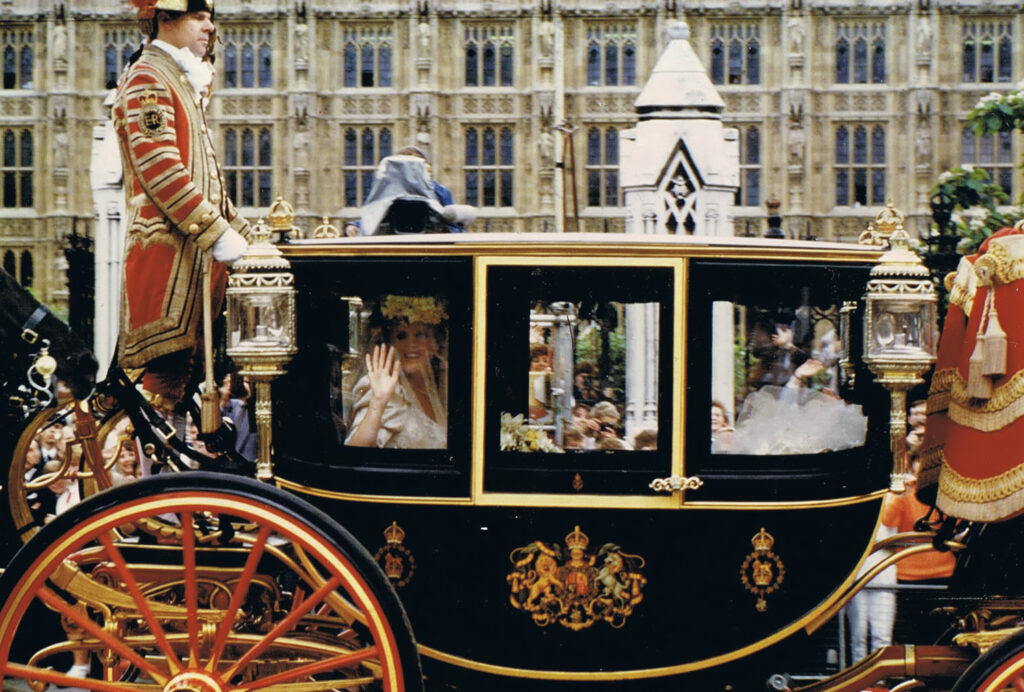Okay, I’m going to write about Harry and Meghan. I wasn’t enraptured at the wedding – I didn’t even know who Meghan Markle was, and I didn’t become a fan when I did learn a little more about her. I didn’t dislike her, I was simply neutral, as I have been about the British Royals ever since Diana married Prince Charles in the fairy tale wedding of my generation.
But I didn’t even buy the fairy tale of their story back then, much less now. This doesn’t mean I don’t fall prey or have never fallen prey to fairy tales–Oh yes, I have swallowed them whole and lived to fulfill them! Just that this particular family, tradition, and set of stories never struck me as terribly magical or interesting. Maybe I felt like it wasn’t really my business.
But the interview with Oprah last Sunday captured my imagination in a way that none of the other Royals stories have, though maybe not for the more common reasons that people seem to be talking about. For me, their story highlights bullying, and the kind of armchair at-a-distance kind of judging that we out here do with people we only see in the media.
For me, their story highlights bullying, and the kind of armchair at-a-distance kind of judging that we out here do with people we only see in the media.
I am thinking right now about Monica Lewinsky. I remember laughing and making jokes about her, and following the story with lurid fascination. I remember thinking how shamefully she embarrassed herself and what a terrible friend Linda Tripp was to her. I remember knowing that Bill Clinton lied when he said he “never had sex with that woman,” but not really caring what he’d done with a girl who clearly was infatuated with him. I figured that was between the three of them and not the business of the U.S. Congress.
But it did not occur to me that I was participating in the public shaming of a woman who would for years want to kill herself from that shame. I am horrified now to think of what we collectively did with her story, and the hell she lived through for decades. We have got to do better.

When I think about all of the embarrassing mistakes I’ve made, I can only thank God that I was never in the public eye for those mistakes. The public can be vicious, and the sad thing is, I don’t think they even really know it. We somehow think that these public figures belong to us, that they exist for our entertainment, and don’t have feelings like we do. I wonder how the British populace will digest the knowledge that their Royals lives in fear of what the tabloids will say about them, and that ultimately they, the people, hold the leash?
For me, Sunday night’s interview stood the notion of all-powerful royalty on its head in a way that felt shocking. Now, this postmodern royal family looks to me like a group of people held prisoner–by duty, tradition, and fear of the tabloid press–all in a fabulously gilded cage! I can find no other word for the relationship between the press, the public and the Royals than abusive. (Except maybe karmic, but we won’t go that dark right now.)

Royal members who behave or present themselves in certain ways get ripped to shreds, hounded, discussed, projected upon, subjected to gossip so wild and untrue it’s mind-boggling. Finding a way to live in peace as a Royal seems a delicate balancing act somewhere between behaving as expected and disappearing. Or waiting long enough for people to move on to the next feeding frenzy, like doing your time, taking the hazing with a stiff upper lip, and waiting for your own little moment of sunshine. If that’s not abuse, I don’t know what is.
But that’s the thing about bullying in the media, isn’t it? And it is definitely not just in the UK.
It took Monica Lewinsky decades to want to live again, to find her dignity, to find her voice, to find something to do and to say, and I’m sure she still has tough days when she wishes she could die.
Meghan Markle has come through her own traumatic passage, but the journey may not be over yet. The report from my British sources is that her performance on Sunday night deeply offends British sensibilities–because it reads as manipulative, and insincere. Too much “poor little me the innocent victim who didn’t know any better” when everyone knows she was a savvy American celebrity who knew exactly what she was getting into. And who now has gotten exactly what she wants again: out of the royal family with a massively elevated brand.
Somehow this read of her feels like the exact same projection of power onto people who, in the end are only human, that keeps the Royals fixed in many peoples’ minds sitting atop the pinnacle of power when in fact they live in fear of the court of public opinion–you should watch Oprah’s disbelief when Harry shares this insight (at 1:02 and 1:09 in the official video below). People are, in the end, human: vulnerable, subject to fear, doubt, and anguish in the face of hatred, criticism, and public shame.
By the way, I hear that England is loving Harry at the moment. To me, Harry is the hero of the piece, so I am happy to hear that.
Watch the Full Interview
Stream on CBS (you’ll have to endure ads, sorry)
More information on ‘The Firm’
In Royal ‘Firm,’ the Family Business Always Comes First

A Guide’s Perspective
This morning, my guide Aran let me know he had something to add to this reflection.
“Thank you for weighing in,” I said.
He nodded and smiled. “Meghan and Harry have given the world an opportunity to reflect on both an internal and external turmoil. They sit at the nexus of a clash of generations and worldviews, touchstones, receiving points for a vast array of conflicting and harmonizing urges, intentions, and perspectives. Issues of racism, tradition, the role of public figures in private lives, the nature of the press in managing the public-private divide–these are just some of the issues at play, and many will be discussing these issues in the coming months or even years.”
“You have raised issues of compassion for those subjected to the glare of public scrutiny, and this too is a worthy area for focus. Bullying affects not just the very famous but also the small and powerless at home, on the school yard, in the back rooms of social media.”
“My interest lies in shining a light into one unobserved crack.” He flashed me a smile. “You have noticed an internal conflict or tension playing under the surface of Meghan Markle’s testimony, and I would concur that that is what is happening. But I suspect that the nature of her confusion lies in a specific area that you touched upon but did not explore more deeply. That is the tension between the search for justice and the search for love and redemption.”
“Ah,” I said, suddenly understanding.
“The search for justice occupies most of political activism. Certainly the fight against racial injustice rests largely within that sphere as it is held by the vast majority in the ring today. Justice holds a high place of honor in the cosmic order. No master teacher would oppose its urges and motives. It does have pitfalls, as does the search for love and redemption. But justice is a worthy cause.”
“The search for love and redemption takes a very different shape, and it is clear from Harry’s presence at Meghan’s side, having chosen to support her and redeem his mother’s memory, that this is the path he has chosen. He also does appear to have escaped the pitfalls of that path, which tend to cluster around a failure of discernment and a tolerance for abuse. Doormat syndrome,” he said. “I believe that what we are witnessing in Meghan is her indecision about which path to take from here.”
“Ah,” I said. “She is vacillating between a righteous stand against racism, shining the light on both that and maybe bullying by the press?” He nodded as I spoke. “And aligning with Harry toward a path to redemption and love, toward resolving the conflict.” He nodded.
“Thank you,” I said. “That does help. Maybe that indecision is what I related to while watching her.” He nodded firmly at that. I spent the better part of a decade caught in indecision, though it didn’t feel like that at the time.
“It didn’t feel like indecision,” I said. “It felt terrible, like I was trapped, miserable, and unable to get free.”
He shrugged.
“But actually, when I was finally able to clear away the noise, I saw that that’s what it was.”
He nodded and beamed at me, like he does.
I’ll have more to share on that indecision, the indecision that literally lasted almost a decade, and that actually caused a lot of suffering–in future posts!





